Beijing, September 17: Daily wearers of eyeglasses might be less likely to be infected with the novel coronavirus, say scientists who call for further, large-scale studies to assess the relationship between eye protection and the risk of contracting COVID-19.
The single-centre study, published in the journal JAMA Ophthalmology, assessed 276 hospitalised COVID-19 patients at Suizhou Zengdu Hospital in China, and observed that those who wore eyeglasses for an extended period of time were relatively uncommon among the study participants. Also Read | Chinese Whistleblower Li-Meng Yan’s Twitter Account Suspended Days After Her Claim That Coronavirus Was Made in Wuhan Lab.
Based on this observation, the researchers, including those from The Second Affiliated Hospital of Nanchang University in China, speculated that wearing eyeglasses for more than eight hours per day may be protective against the novel coronavirus infection.
They hypothesised that this may be due to eyeglasses acting as a barrier that reduces the frequency with which people touch their eyes. Also Read | Chinese Yuan Wang-Class Research Vessel, Which Entered Indian Ocean Region From Strait of Malacca in August and Was Constantly Tracked by Indian Navy, Returns to China.
"All those who wore glasses for more than eight hours a day had myopia and included 16 of 276 patients. The proportion of people with myopia in Hubei province, based on a previous study, was 31.5 per cent," the study noted.
According to the researchers, the proportion of people with short-sightedness, or myopia, was much higher in the general population than among those with COVID-19. However, citing the drawbacks of the study, the scientists said it was conducted only in a single-center with a small sample size, limiting the extension of the results to a larger population.
They believe the results need to be verified by large-sample multicenter studies. According to the researchers, data on the proportion of eyeglasses wearers in the general population that was used as a reference in the study was obtained previous literature, and was not currently estimated. This old data set also included an analysis of people with myopia in the general population in 1985.
They said the myopia rate observed in this data set also included a small number of people with nearsightedness who did not wear eyeglasses. "Information on these people was lacking and partly affected the integrity and validity of our data," the scientists noted.
In a commentary attached to the study, epidemiologist Lisa L. Maragakis from the Johns Hopkins University School of Medicine in the US said the results may be misleading owing to confounding variables. Maragakis said there may be an alternative explanation for the findings "if, for instance, wearing eyeglasses is associated with another unknown and unmeasured factor associated with the risk of COVID-19."
"Although it is tempting to conclude from this study that everyone should wear eyeglasses, goggles, or a face shield in public to protect their eyes and themselves from COVID-19, from an epidemiological perspective, we must be careful to avoid inferring a causal relationship from a single observational study," she wrote in the commentary.
But the epidemiologist said it is plausible that eyeglasses might serve as a barrier against such transmission from droplets or contaminated hands. "Although eyeglasses do not provide the same extent of eye protection as goggles or a face shield, they may serve as a partial barrier that reduces the inoculum of virus in a manner similar to what has been observed for cloth masks," she noted.
Maragakis urged caution in the interpretation of the study, adding that wearing goggles, a face shield, or even eyeglasses might pose an increased risk of touching one's eyes more frequently and "potentially contaminating them when removing, replacing, or adjusting the eye protection, especially if a person is not accustomed to wearing them."
She said more studies are needed to determine whether there is any benefit to wearing eyeglasses or other forms of eye protection in public settings, in addition to physical distancing and wearing masks to prevent contracting the virus.
(The above story is verified and authored by Press Trust of India (PTI) staff. PTI, India’s premier news agency, employs more than 400 journalists and 500 stringers to cover almost every district and small town in India.. The views appearing in the above post do not reflect the opinions of LatestLY)




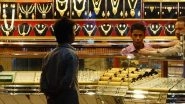
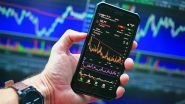

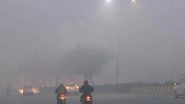
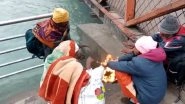

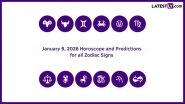
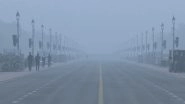

 Quickly
Quickly


